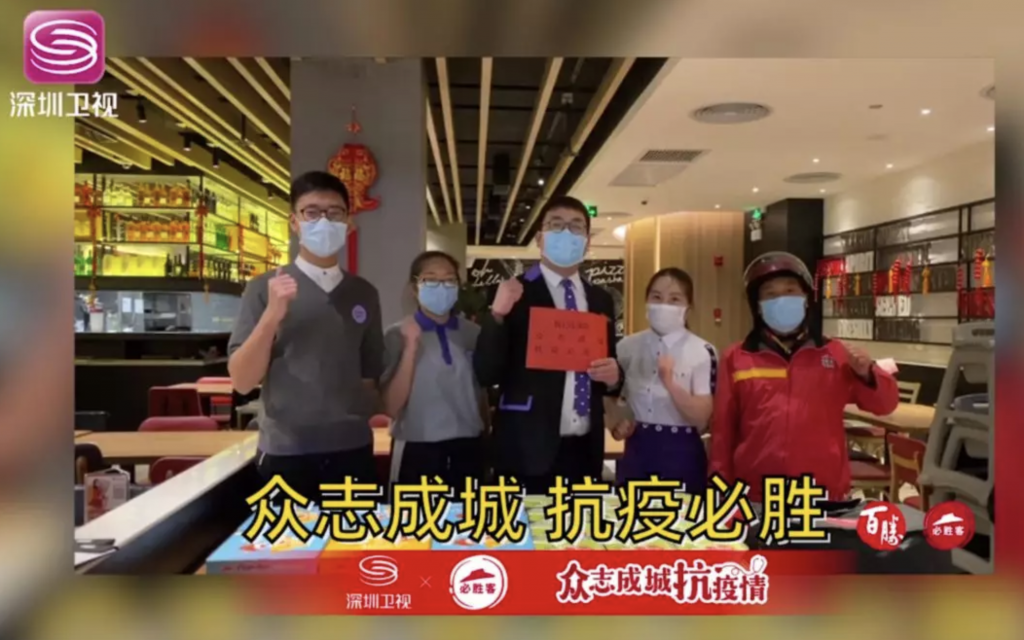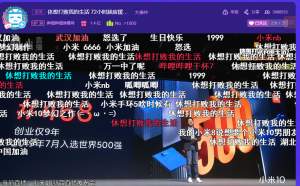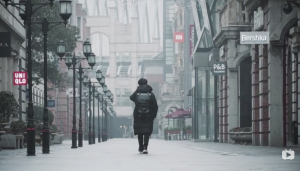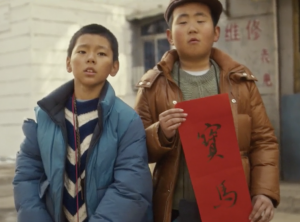
Pizza Hut employees in China offered a message of support via Shenzhen Satellite TV
Amid the ongoing coronavirus crisis, business is slowly resuming following an extended Lunar New Year holiday that kept most people at home for more than two weeks. Anticipated declines in China’s GDP growth as a result of the epidemic will have a direct impact on corporate advertising budgets and industry revenues, with double-digit declines anticipated for the first quarter of 2020.
Though brands have been understandably hesitant to engage in major promotional campaigns as the coronavirus continues to spread, there’s been ongoing activity that connects brands to the efforts to cope with the outbreak. As we reported last week, many brands have made donations of cash, goods and services, which are widely appreciated by consumers. And last week, Shenzhen Satellite TV launched a program to give free airtime for public service announcements from companies that have been supporting the fight against coronavirus. Pizza Hut, M&Ms and Abbott are among 20 brands selected for first batch of ads under the program.
While movie theaters remain shut, some would expect that online movies would benefit, but that hasn’t yet been the case. China’s three major video platforms released a total of 18 original movies between January 24-31, but none have performed particularly well. That’s partly due to competition from theatrical releases that were released online, and also reflects a slowdown in online movie production and viewer preferences for big-budget studio films.
Highlighting some public resistance to entertainment-related content, singer Zhou Jieqiong came under harsh criticism for alleged self-promotion on social media. After a February 5 post by Zhou on her health shot to fourth place on Weibo’s hot topics list, she was accused of “occupying public resources” by paying for the post to obtain a high ranking and distracting attention from other coronavirus-related updates.
The fifth season of iQiyi’s romantic, “Friends”-like sitcom ‘iPartment” (爱情公寓 5) was among the top-rated shows of the Spring Festival period, and a recent episode included an innovative and lengthy integration of Netease’s multiplayer game “Justice Online” ((逆水寒), with three 45-second placements within a single 45-minute broadcast. Netease reportedly paid a significant sum for the integration, which highlighted the game’s visual elements and worked with the storylines that revolve around young professionals.
Maserati partnered with Tencent’s Game of Peace to offer virtual cars for players including the classic Ghibli in blue, pink and gold versions, marking the first time an auto brand has been featured in the hugely popular game. The collaboration was launched on January 21 with a livestream broadcast of popular actor Kenny Lin test-driving an in-game Maserati and has drawn a great deal of positive attention on Chinese social media, and is reportedly part of a strategy to raise Maserati’s profile among young men, since the Chinese market for the luxury auto brand has been predominantly female.
News in English
- The NBA made donations worth $1.4 million to Hubei province, drawing words of appreciation from the Chinese consul general in New York City, though the league’s business in China has yet to recover from last year’s rift over Hong Kong’s democracy movement. SCMP
- Chinese movie studios such as Hengdian and Xiangshan are making plans to gradually resume filming work with additional safety precautions in place to protect against further spread of the coronavirus. Drama Panda
- Reports from ad agency networks see an unpredictable near-term suppression of consumption, ad budgets and consumer sentiment, which would be “released” later in the year once the outbreak subsides. Campaign Asia
- Hong Kong’s Disneyland resort was proposed as a coronavirus quarantine center. SCMP
- A guide to marketing through influencers in China, where the industry is “three to five years ahead of the rest of the world.” Parklu
We’ve Got China Covered





